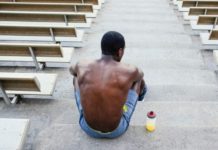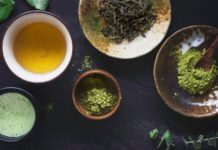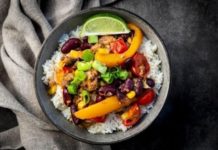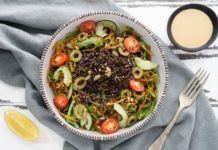
For more than three decades, it has been the primary work of this renowned geneticist to remind us that humans are simply one part of the environment and linked to every species on the planet.
For more than three decades, it has been the primary work of this renowned geneticist to remind us that humans are simply one part of the environment and linked to every species on the planet.
Since 1979 David Suzuki has hosted the CBC television series The Nature of Things, showing viewers how environmental damage endangers animal and human habitats. In 2005 he was appointed Companion of the Order of Canada for his international success at making science understandable and exciting. The previous year he was voted among the top five most important Canadians in a nationwide contest on The Greatest Canadian television series.
Suzuki has never shied away from controversy. He has capably shouldered criticism for speaking out, sometimes bluntly, on charged topics such as clearcutting, genetic engineering, and more recently, global warming.
The Facts on Global Warming
Suzuki believes that the controversy about climate change, and the role of human industry in contributing to it, has been perpetrated by the fossil fuel industry.
On the one hand, he says, “You have this huge group, the Intergovernmental Panel on Climate Change, the most credible body of scientists going, you have all the major academies of science in the G8 countries–all have said, look, it’s happening, we’re a part of it, and we’ve got to do something.”
On the other hand, you have “a small group of maybe eight or 10 people, most of them paid by the fossil fuel industry, who are denying it.”
“We’ve added 30 percent more carbon dioxide to the atmosphere than existed 150 years ago,” Suzuki explains. “At the rate we’re going, we’re going to more than double that before the end of this century.”
The climate is changing as a result. Climate change experts predict we will see a two-degree Fahrenheit increase in 100 years.
“As the temperature rises, plants and animals become very vulnerable,” Suzuki explains. “The Amazon, for example, went through a period of drought for the first time last year. And studies indicate that the forests can survive one year of drought; if it’s two years they’re weakened and in trouble. Three years of drought—that’s it.”
Without the Amazon acting as the planet’s biggest carbon dioxide sponge, the Earth will get warmer still, and we then risk liberating methane, another greenhouse gas that is 22 times more potent than carbon dioxide, from Arctic ice and the ocean floor. This will further intensify the process of global warming, with totally catastrophic results, asserts Suzuki.
“I feel as if I’m in a car headed for a brick wall, going 100 miles an hour, and everybody’s arguing about where they want to sit,” he says.
Fossil Fuel Deaths
With such dire consequences, it’s puzzling that we’re not all tripping over each other to stop contributing greenhouse gases.
“The problem is,” says Suzuki, “that climate change is so big, and it seems so far away. It’s easy for politicians to punt, basically, and count on nothing serious happening before the next election.”
If climate change is too big a hit for most politicians and citizens to take right now, the Suzuki Foundation has tracked the health consequences of continuing to consume fossil fuels.
“What we’ve found is that burning fossil fuels is killing 16,000 Canadians a year, just from pollution. For every person who dies, there may be 10 or 12 people who will get very sick and have to go to hospital. Every death is just the top of a huge pyramid of people who are impacted in different ways. If we were to reduce our use of fossil fuels, we’d have a huge health benefit.”
He’s pointing out those interconnections again–our health and our planet’s health are inseparable.
Your Meals Matter
“Everything you do has repercussions,” Suzuki says, “especially around food. Here’s something that every one of us cannot do without: we take food into our bodies and make it a part of what we are.”
Choosing locally produced, organic food is optimal, but for most of the year in Canada, organics may have to travel great distances, resulting in the emission of tons of greenhouse gases just to get from farm to market.
“Food is such a complex issue because of globalization. Start deconstructing a pizza, from the pepper seeds to the salt to the anchovies and tomatoes; it turns out that pizza connects you to the world,” Suzuki says.
He recommends that concerned consumers ask questions about the origins of our food and take responsibility for what we eat.
At home, Suzuki and his wife, Dr. Tara Cullis, try to eat a mainly organic diet. However, he notes, “Chemicals are so ubiquitous in the air, water, and soil that even if you lived completely organically, you’re still loaded.”
For the Suzuki family, the big question mark is the accumulation of toxins from fish (even though it’s wild fish only), which they eat regularly; recreational fishing is his passion.
Getting His Medicine
Now 71, Suzuki is trim and energetic–an elder, but by no means elderly. How does he stay so fit?
“I’m not as picky about my food as a lot of my friends are,” he admits, but “exercise is my medicine. I’m on the road a lot, and I build into my tour that I have two hours–I don’t care when, early morning or late at night–so I can go to the gym.”
Which may explain the poll results. In 2004, Maclean’s magazine asked women across Canada who they’d most like to be marooned with on a desert island. David Suzuki was the top pick.
“It was quite remarkable,” he says with a grin, but adds that, when he later bragged to his wife about it, she told him, “Suzuki, women are smart. They know you fish; you’re just a meal ticket.”
As chair of the David Suzuki Foundation, he works seven days a week, meeting with politicians, speaking at rallies, and leading research projects, but is now considering cutting back to four days a week. He says he can’t stop his brain from working. “I have three grandchildren, and I don’t ever want them to say, ‘Grandpa, you could have done more.?
Wouldn’t you like to be able to say you’d done as much?
What You can Do About Global Warming
Most of our daily activities add carbon emissions to the atmosphere. Offset those emissions with some of the carbon-saving schemes described on the Go Carbon Neutral page at davidsuzuki.org
Take Suzuki’s Nature Challenge
Join the Nature Challenge at davidsuzuki.org.
To read more about it, see the article by David Suzuki at alive.com/naturechallenge.php
- Reduce home energy use by 10 percent.
- Eat meat-free meals once a week.
- Buy a fuel-efficient, low-polluting car.
- Choose an energy-efficient home and appliances.
- Stop using pesticides.
- Walk, bike, or take transit to regular destinations.
- Prepare your meals with locally produced food.
- Choose a home close to regular destinations.
- Support alternatives to the car.
- Get involved and stay informed.















